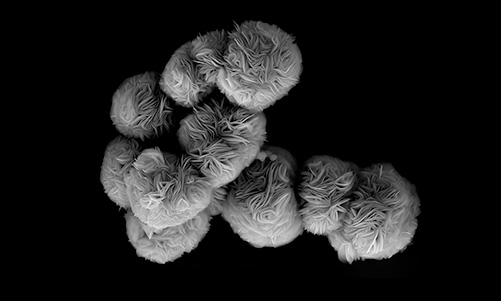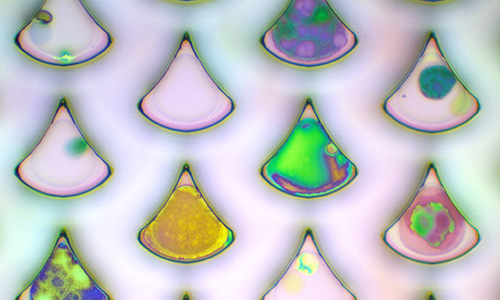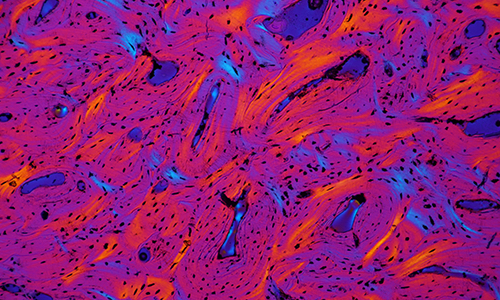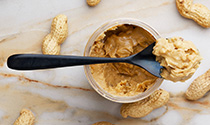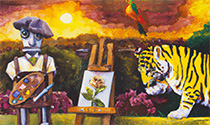|
|
|
|
| |
| |
|
|
| |
Dear readers,
For the past five and a half years, it has been my pleasure to present exciting and important science from UChicago’s researchers. I hope you have found it as fun to read as it has been for me to write, terrible puns and all—but it’s time to pass the torch. Stay tuned for a new Mu, and thank you for reading.
—Maureen |
|
| |
|
|
|
|
| |
|
|
| |
|
|
| |
|
|
|
|
|
| |
Last year UChicago held the inaugural Science as Art contest, calling for original images resulting from research affiliated with the University. Winners included chondrules, crystals, and Mary Calvert. |
|
| |
|
|
|
|
|
|
|
|
|
| |
Winner: “Origami in a Tube,” by chemistry PhD student Di Wang, SM’20. Wang is part of a team researching new ways to create atomically thin layers of metal called MXenes (pronounced “maxeens”). These microscopic structures may be useful for future electronics and energy storage devices, but they’re hard to make. Wang and team invented a new, easier method to grow the material, which folded into these metal “flowers.” |
|
| |
|
|
|
|
|
|
|
| |
Runner-up: “Exploring a Microcosm,” by molecular engineering PhD student Pengju Li. This microscope image of teardrop-shaped silicon structures is part of Li’s research into new kinds of materials for energy storage. Li used a chemical etching process to create extremely tiny pores on the surface of the silicon that interact with light to display vibrant colors. The material can absorb light and convert it to energy, like solar panels. |
|
| |
|
|
|
|
|
|
|
| |
Audience favorite: “Fuchsia Bone,” by geophysical sciences PhD student Rachel Laker. This photograph shows the fossilized bone of a whale that lived about 15 million years ago. Through a microscope that uses polarized light, Laker took the photo while examining the fossil for microscopic taphonomic damage, which records what happened to the bone after the animal died but before it became a fossil. |
|
| |
|
|
|
| |
Visit the Flickr album to see more art from UChicago researchers, including an Iron Age hearth, a bouquet of worms, and a Petri paradise. |
|
| |
|
|
|
|
|
|
|
|
|
|
|
|
|
| |
| |
Visit the Alumni & Friends website for stories, podcasts, and other features, curated for you on UChicago Review. Create an account for a more personalized experience. |
|
|
|
| |
|
|
|
|
| |
| |
Sign up to receive µChicago monthly. |
|
|
|
| |
|
|
|
|
